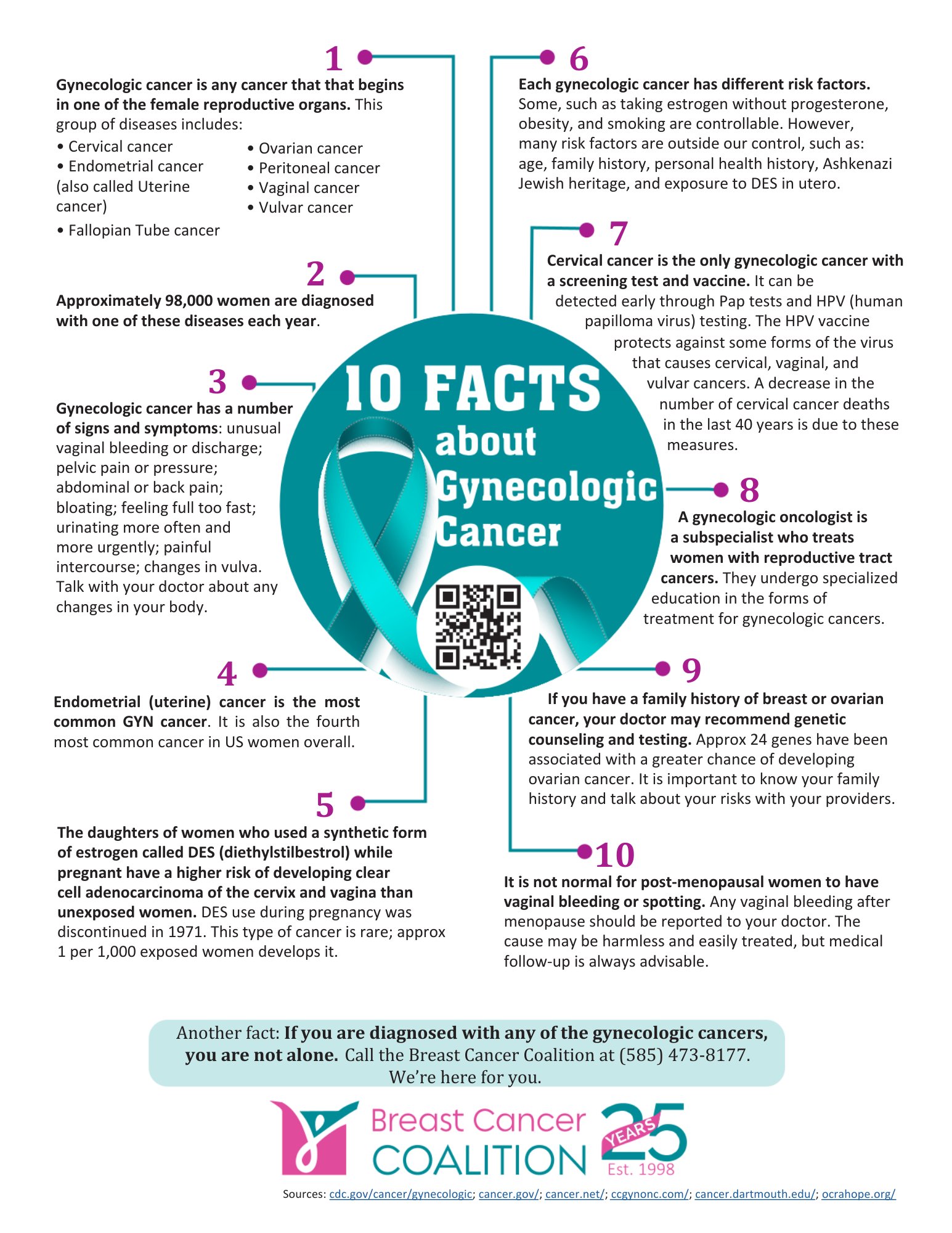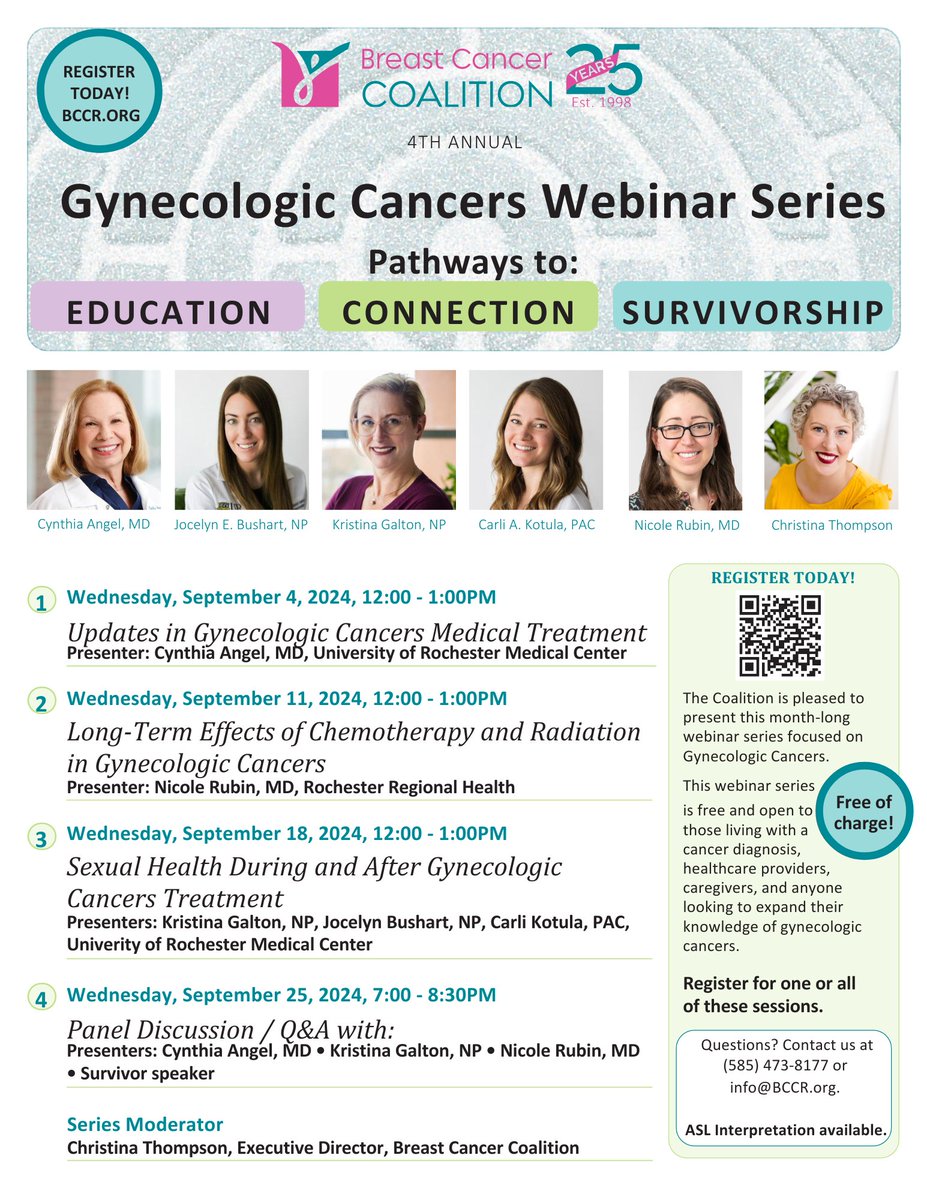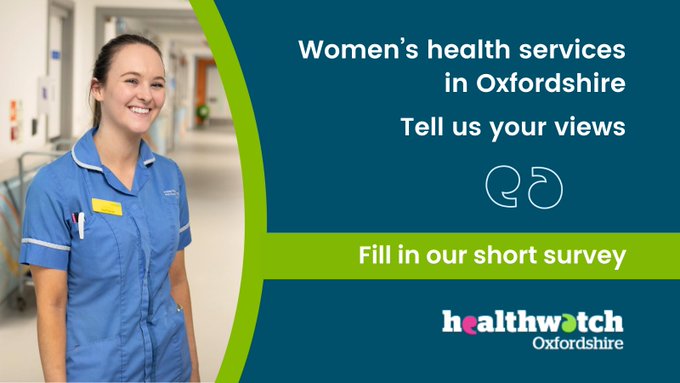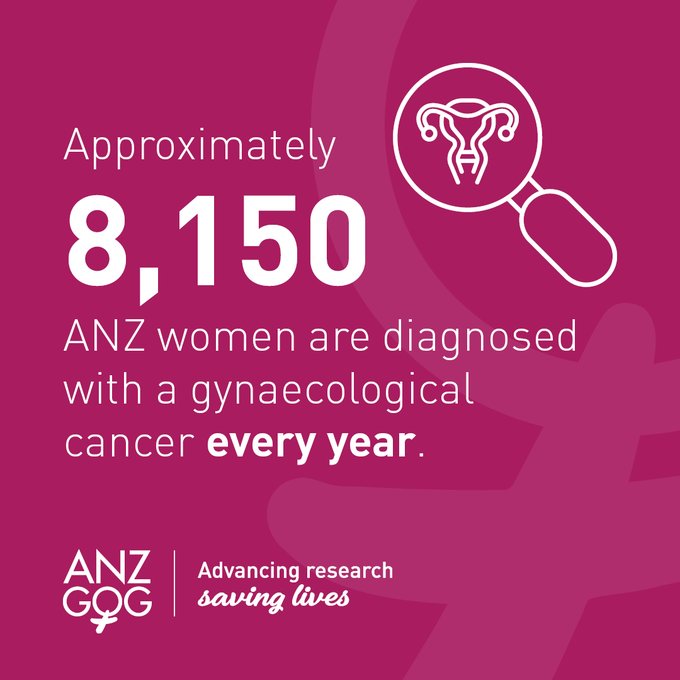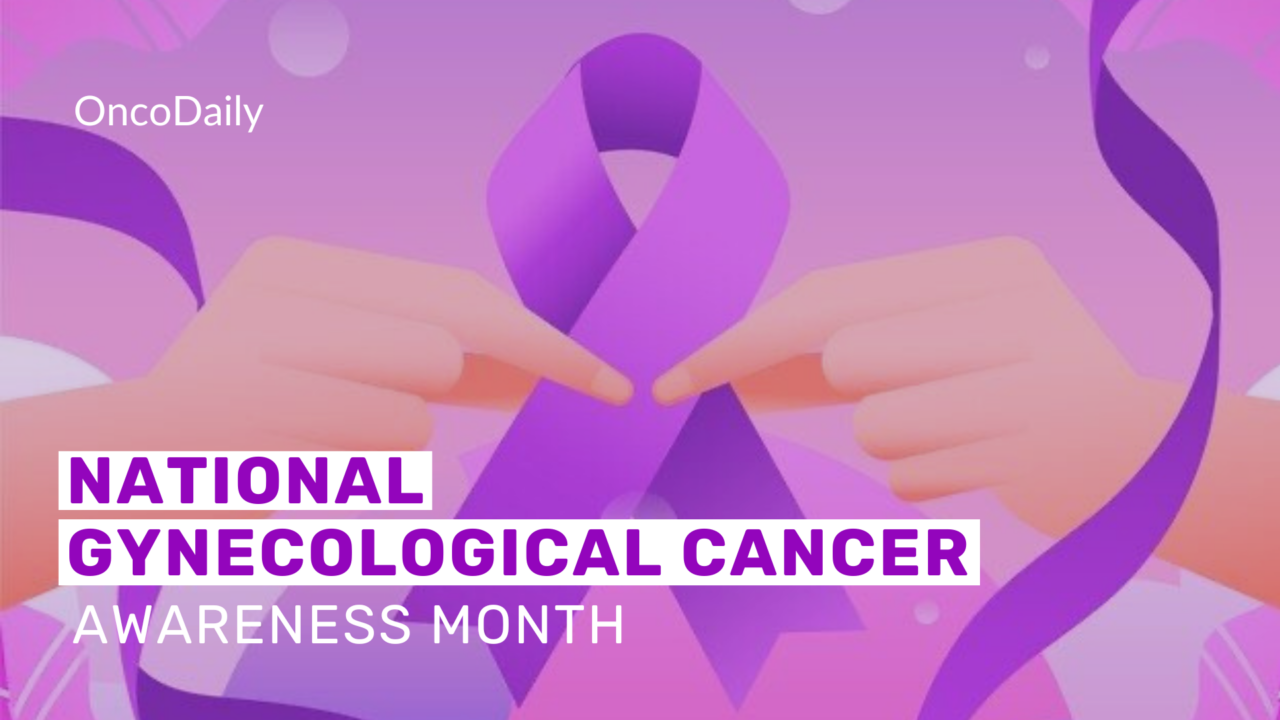National Gynecological Cancer Awareness Month is observed each September.
The goal is to educate the public on prevention, early detection, and treatment options for these types of cancers, to raise awareness about gynecologic cancers, which include cancers of the ovaries, uterus, cervix, vulva, and vagina. Awareness campaigns often focus on symptoms to watch for, the importance of regular gynecological exams, and the support available for those affected by these cancers.
Many gynecologic cancers have subtle symptoms or may not present symptoms until later stages. Awareness campaigns aim to educate women about these signs and the importance of regular gynecological check-ups.
National Gynecologic Cancer Awareness Month not only aims to inform and educate but also to inspire action and provide support for those affected by these cancers. By raising awareness and encouraging preventive measures, we can help improve outcomes and provide hope for those in need.
Here is what healthcare organizations and professionals are sharing on social media:
Sbarro Health Research Organization:
“National Gynecologic Cancer Awareness Month is observed in September. It is a dedicated time to raise awareness about gynecologic cancers, which include cancers of the cervix, ovaries, uterus, vagina, and vulva. The month focuses on educating the public about these types of cancers, encouraging early detection through screening, and promoting research for better treatments and eventual cures.
National Gynecologic Cancer Awareness Month is more than just a date on the calendar; it serves as a beacon, guiding us as a society to take actionable steps against these diseases. With each conversation sparked, screening scheduled, and research initiative funded, we move closer to a future where these diagnoses inspire hope rather than fear.
As we highlight National Gynecologic Cancer Awareness Month, we come together to educate, empower, and advocate for ongoing research and support, transforming fear into hope for those affected by gynecologic cancers.
To learn more about reducing risks and screening options, ladies, get your gynecology appointment today. Check-ups are healthy! Together, we can drive change and bring hope to those impacted by gynecologic cancers.”
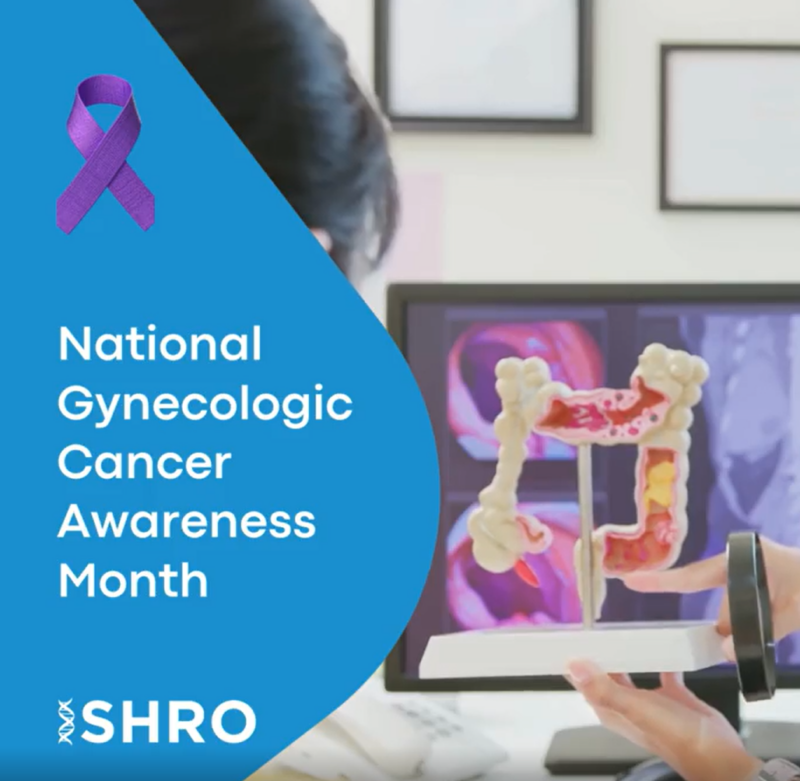
Gateshead Health NHS Foundation Trust:
“September is Gynaecological Cancer Awareness month,
This month we will be focusing on all the gynae cancers, sharing symptoms to look out for and how you can get help and support.
Stay tuned to our channels for more information.”
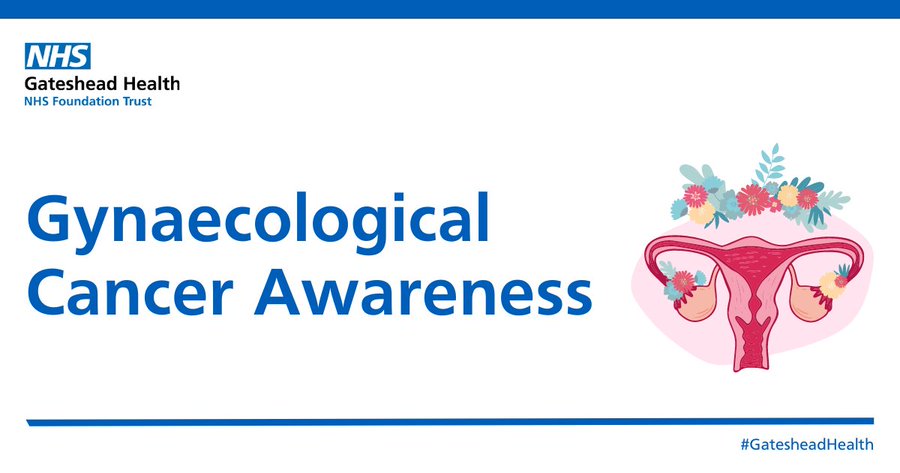
Westchester County Health Department:
“September is Gynecological Cancer Awareness Month. Every 5 minutes, a woman is diagnosed with one of the 5 gynecologic cancers – cervical, ovarian, uterine/endometrial, vaginal, or vulvar – totaling nearly 115K Americans each year. Head here to learn more. ”
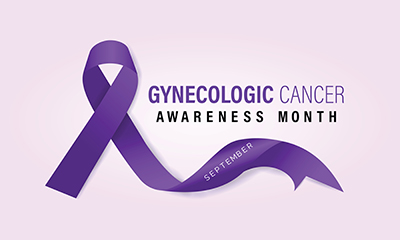
Nassau County Medical Society:
“September is Gynecologic Cancer Awareness Month!
Let’s come together to raise awareness, support research, and honor the strength of those affected. Early detection saves lives.”
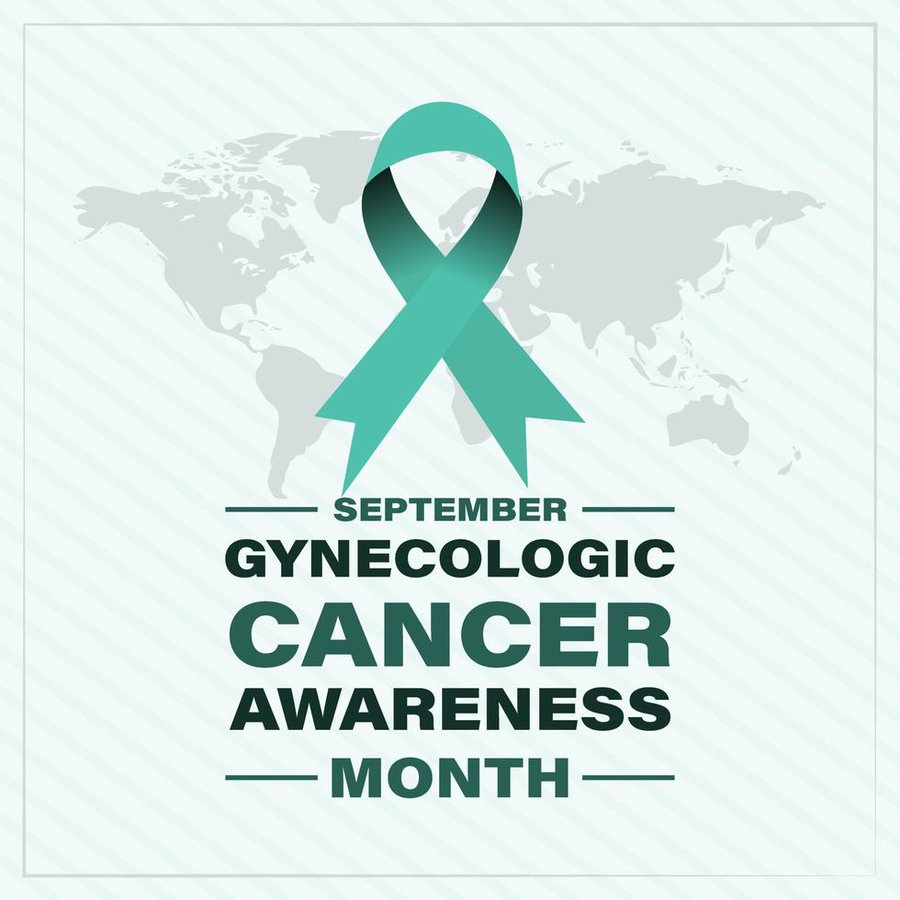
Sami (Papacek) Mansfield:
“Gynecologic Cancer Awareness month Day 2.
Empowering Cancer Survivors Through Lifestyle Changes.
A recent study from BIOMED CENTRAL LIMITED has highlighted the profound impact that introducing simple, habits focused on choosing healthier lifestyle changes can have on the quality of life for patients with gynecological cancer.
After their diagnosis, 89% of patients who were introduced to the importance of lifestyle habits reported making significant changes in their daily habits—embracing healthier diets, reducing stress, and quitting harmful habits like smoking. These changes aren’t just about living longer—they’re about living better.
Here’s what we learned:
– Nutrition: 66% increased their intake of fruits and vegetables, and 65% reduced red meat consumption.
– Physical Activity: While some patients faced challenges in maintaining their exercise routines, 27% managed to increase their activity levels.
– Stress Reduction:An encouraging 77% of patients reported feeling less stressed after making lifestyle changes.
– Nicotine and Alcohol Consumption: A significant number of patients either quit smoking or reduced alcohol intake.
This research underscores the importance of discussing lifestyle factors with all oncology patients as part of their care plan with an emphasis on quality of life.
While more prospective studies are needed to fully understand the benefits, the potential for lifestyle changes to improve quality of life and impact disease outcomes is undeniable.
Call to Action 1: If you’re a healthcare professional, start the conversation about lifestyle changes with your patients today. The impact could be life-changing.
Call to Action 2: Are you a cancer survivor or currently in treatment? Share your own experiences with lifestyle changes in the comments—your story could inspire others on their journey.
Call to Action 3: Let’s advocate for more resources! Need a place to start? Check out.
Together, we can make a difference – one healthy choice at a time.”

The Eve Appeal:
“8 in 10 women have NEVER checked their vulva for changes and symptoms of cancer.
This Gynecologic Cancer Awareness Month we want to make checking for vulval changes as normal as checking for signs of other cancers.
Find out more.”
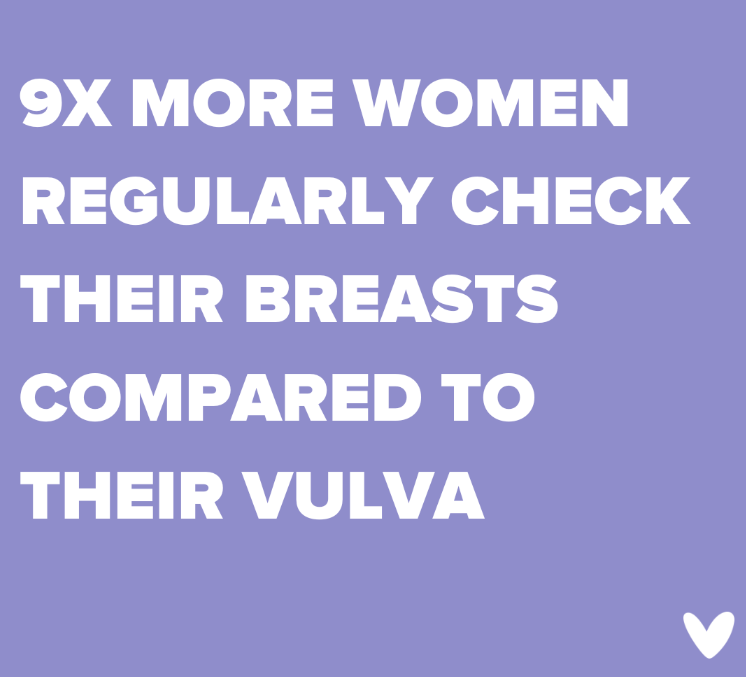
Harry B. Bronson:
“September is Gynecologic Cancer Awareness Month. The Breast Cancer Coalition of Rochester, located in my district, serves those with breast and gynecologic cancers in 27 counties in the Western and Central New York regions.”
The Coalition provides free educational resources for our community, including the upcoming 4th Annual Gynecologic Cancers Webinar Series, offered in 4 sessions throughout September. Register today.”
NHS Central and South Genomics:
“September is Gynaecological Cancer Awareness Month. Lynch Syndrome can increase the risk of endometrial and ovarian cancers: we’re running events on Lynch Syndrome throughout the month to mark Gynaecological Cancer Awareness Month. Register here”
HealthwatchOxon:
“September is gynecological cancer awareness month. Healthwatch Oxfordshire would like to hear about your experiences of getting help and support for women’s health issues. Please fill in our anonymous survey.”
ANZGOG:
“September is Gynaecological Cancer Awareness Month. Over 8,000 ANZ women are diagnosed with a gynaecological cancer every year. Diagnosis is often delayed, leading to the treatment of advanced diseases, which is fatal. Too many are losing loved ones.”
